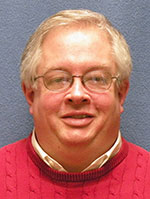Reflection / Sean Gallagher
Effective communication of the Gospel can awaken consciences, change the world
 The government of Nicaraguan president Daniel Ortega and his wife, now co-president Rosario Murillo, have had the Catholic Church in its crosshairs for years.
The government of Nicaraguan president Daniel Ortega and his wife, now co-president Rosario Murillo, have had the Catholic Church in its crosshairs for years.
That’s because faithful Catholics there—laity, religious, priests and bishops—have courageously denounced the increasingly dictatorial regime in Nicaragua and offered an alternative vision of society, one based on Gospel values and respect for all people.
Such speech is not welcome in Nicaragua at present, however, and regularly results in outright persecution.
This happened most notably in the case of Bishop Rolando Álvarez of Matagalpa, Nicaragua. He was using his platform as a bishop to condemn the Ortega regime’s oppression of people’s freedoms.
Last August, Nicaraguan national police forces effectively put Bishop Álvarez under house arrest at his home and chancery in his diocese. Undeterred, he came to the gate of his home to plead with the police officers—all wearing riot gear. He knelt there in prayer, blessed them and serenaded them. And videos of this were posted on social media.
That, apparently, was too much for the Ortega government. In a pre-dawn raid on Aug. 19, police forces abducted Bishop Álvarez and other priests, seminarians and lay Catholics who were at his home at the time. The bishop was placed under house arrest in the national capital of Managua. The others were placed in El Chipote Prison in Managua, a place with a notorious history for the torture of political prisoners.
A criminal court in Managua recently ruled that Bishop Álvarez should be put on trial for conspiring to undermine national security and sovereignty and for disseminating false news.
This last charge, as specious as it is, points to a real means of positive change in Nicaragua: effective communication of the truth that can awaken the consciences of the people.
In addition to arresting Bishop Álvarez and numerous priests across Nicaragua, the Ortega regime has arrested at least one Catholic journalist and closed down several Catholic radio and TV stations.
Vigorous, faithful and creative Catholic media outlets in any place are essential to sharing the good news of Jesus Christ and how it is relevant for our society here and now.
In a country like Nicaragua where human dignity is attacked so clearly, the ministry of effective Catholic communication professionals is indispensable. Daniel Ortega seems to know this, since his government is doing all it can to silence them.
But Catholics there and their brothers and sisters in faith here and around the world can be confident that the truth will, in the end, prevail.
The strategy of repression of free speech and freedom of the press employed at present in Nicaragua was used in communist countries in Eastern Europe, especially during the pontificate of St. John Paul II.
His consistent and positive defense of human dignity and the presentation of a vision of a well-ordered society, based on human freedom, inspired countless people in the countries behind the Iron Curtain even when a free press did not exist.
Underground publications were covertly published and distributed. And the message of freedom and dignity of Pope John Paul and many local Church leaders awakened the consciences of the people. This, of course, led to a peaceful revolution in countries across Eastern Europe.
May God give courage and strength to Catholic media professionals still free in Nicaragua to continue their vital ministry. May he inspire others to take up, even if secretly, the work of those who have been arrested.
And may God bless and strengthen the work of Catholic communicators around the world through the intercession of St. Francis de Sales, the patron saint of journalists, whose feast is on Jan. 24.
(Sean Gallagher is a reporter for The Criterion, newspaper of the Archdiocese of Indianapolis.) †
 The government of Nicaraguan president Daniel Ortega and his wife, now co-president Rosario Murillo, have had the Catholic Church in its crosshairs for years.
The government of Nicaraguan president Daniel Ortega and his wife, now co-president Rosario Murillo, have had the Catholic Church in its crosshairs for years.